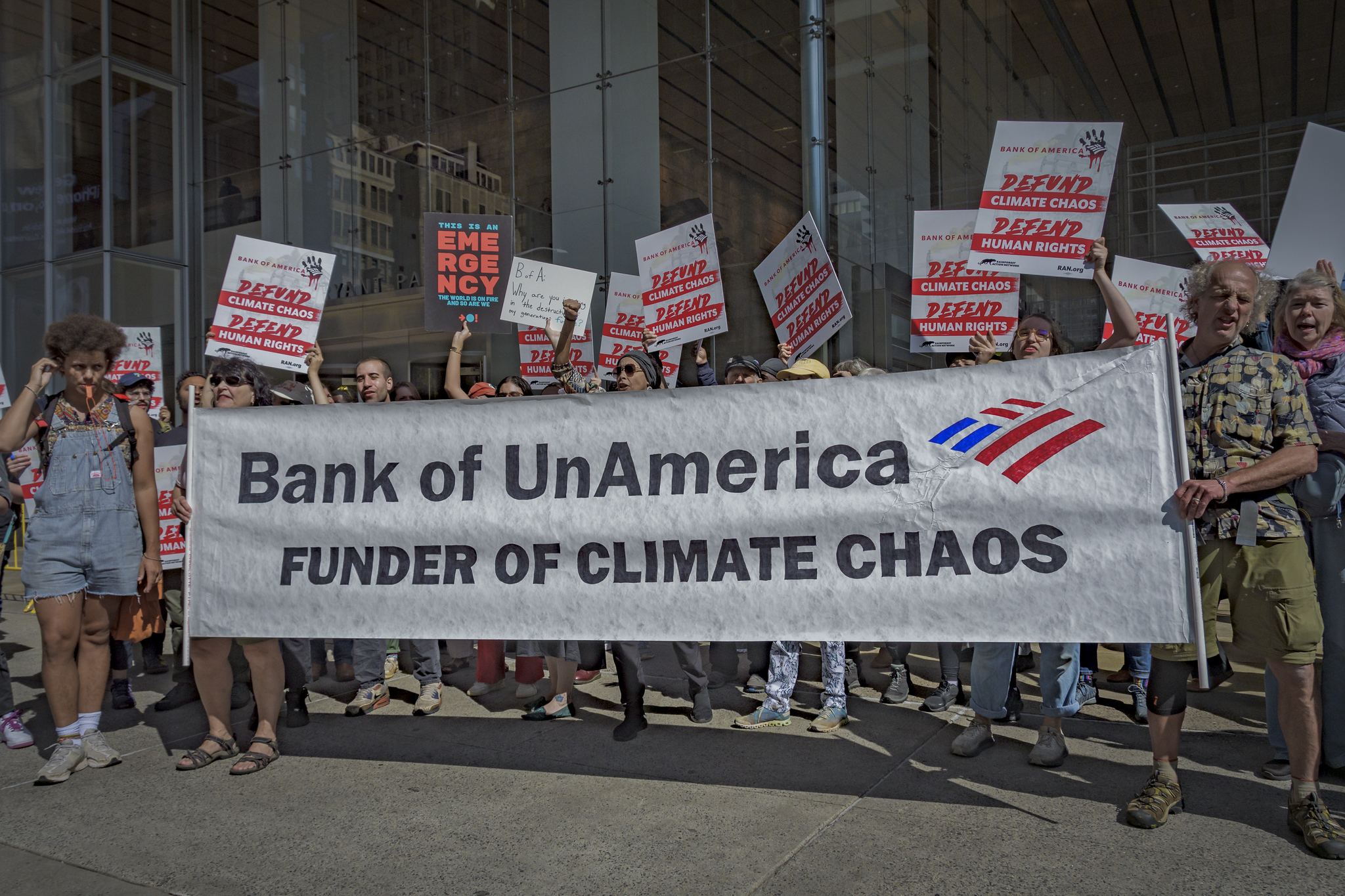The brutal reality of climate chaos is being lived by millions of people around the world today, with its greatest burden borne by mostly BIPOC and low-income communities. Our global trajectory is on track for far worse to come for future generations. There’s no denying it and there’s no more time for delay in addressing it. There is no carbon budget left for any further fossil fuel expansion, much less for greenwashing and empty policies from those who profit off of this devastation.
Our new report, Complicit: Bank of America’s Role in Fossil Fuel Expansion and the Violation of Human Rights, explores how badly Bank of America is failing on human rights by failing on their climate commitments. By financing fossil fuel expansion at scale in a time of climate crisis, this bank, and many others, have made themselves complicit, by definition, in the violation of human rights of millions today, and many more in years to come.
Bank of America’s funding harms communities and devastates biospheres from the Gulf South to the Amazon to Appalachia and the Arctic. These deals disrespect the rights of Indigenous peoples, perpetuate environmental racism and are directly linked to the overshoot of 1.5°C pathways the bank claims to be committed to.
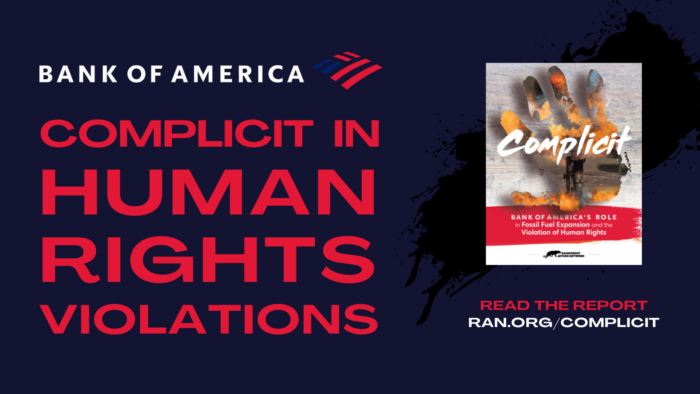
The Climate Crisis is a Human Rights Crisis
The climate crisis is inherently and undeniably a human rights crisis as well, and no bank’s human rights due diligence system can be complete that fails to address the impact of a bank’s financing of fossil fuels. These are the five types of human rights violations that are embedded in climate change:
- Extreme Weather Effects: The clear and devastating impacts of climate disasters on people represent a human rights violation. We point to recent climate change-linked extreme events, from flooding in Libya last July that claimed eleven thousand lives to Hawaiians mourning the loss of life and Indigenous cultural sites following the devastating wildfires in Maui to Canada’s more than 1000 wildfires to the severe drought affecting millions of people in eastern Africa.
- Funding Fossil Expansion in a Time of Climate Chaos: The failure to address a bank’s role in human-induced climate change and its harms constitutes a human rights violation. Banks enabling systemic fossil fuel expansion are violating human rights because the primary human activity exacerbating climate change is the expansion of fossil fuel extraction, transportation, processing, and burning.
- Harms to Environmental Justice Communities: Fossil fuel extraction, transportation, processing, and use violates human rights not just because those activities contribute to climate change, but also because building fossil fuel infrastructure causes pollution, creates public health hazards, destroys fragile habitats, and erodes land rights and community integrity.
- Rights Violations Associated with Fossil Fuel Projects: Environmental activists and land defenders globally face heightened threats of violence, including murder, and it’s clear that fossil fuel projects exacerbate violence and land grabbing.
- Violations of Indigenous Rights and Sovereignty: Too often, Indigenous sovereignty is violated in the process of extracting oil, gas, coal, and even the critical minerals necessary for less-carbon-intensive energy production.
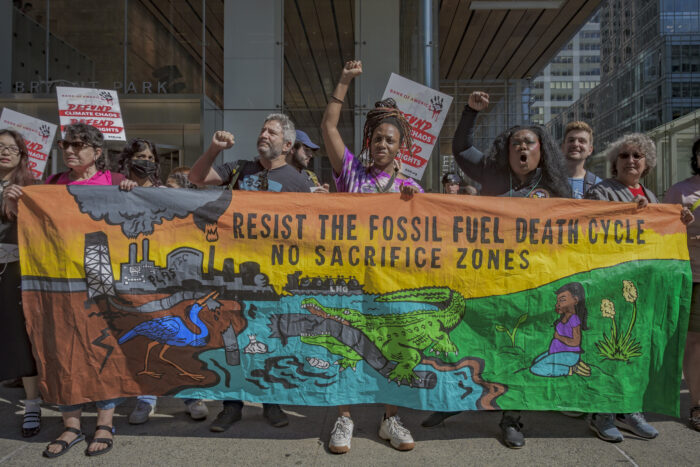
Every day, environmental human rights defenders face abuse, threats and harassment for their work addressing the triple planetary crisis of climate change, pollution and nature loss.” – Michelle Bachelet, UN High Commissioner for Human Rights
Bank of America’s human rights statement acknowledges the bank’s responsibility to protect human rights, but their response is to point to their inadequate net zero commitments and their loophole-filled policies. There’s no meaningful connection between their climate efforts and their human rights policies, and those policies themselves are a patchwork of disconnected systems rather than a comprehensive and robust human rights due diligence mechanism that would be grounded in meaningful stakeholder consultation, Human Rights Impact Assessments (HRIA)s, continuous improvement, and proactive due diligence.
The climate crisis is killing us. It is undermining not just the health of our planet, but the health of people everywhere – through toxic air pollution, diminishing food security, higher risks of infectious disease outbreaks, record extreme heat, drought, floods and more.” – António Guterres, Secretary General of the United Nations
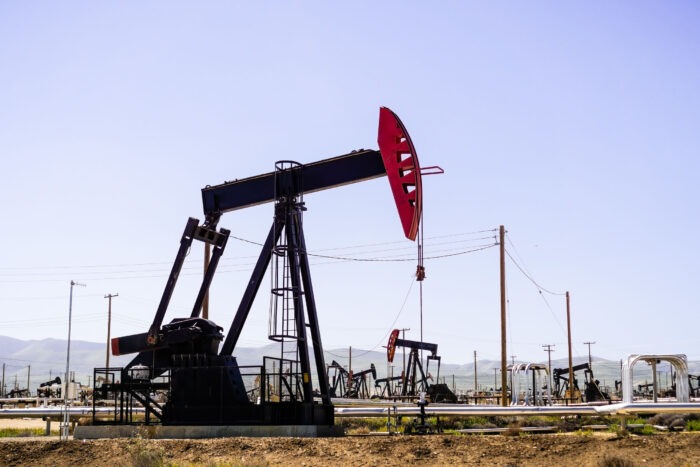
The Impacts of Fossil Fuel Financing
BofA has provided $279.7 billion in financing (lending and underwriting) to fossil fuel companies since 2016, the year the Paris Climate Agreement went into effect. They’ve also funded the 100 worst fossil fuel expanders to the tune of over $87 billion in that time. We found a range of examples of how the bank’s financing of fossil fuel companies is contributing to the overshoot of net zero commitments, to an explosion of methane gas expansion in the US Gulf South with global implications, to the building of pipelines, the flaring of uncapped wells, and harm to Indigenous communities in the Amazon and the Arctic and beyond. Below are just some of those examples:
- Net Zero Overshoot: In 2022 alone, Bank of America provided $10.5 billion in lending and underwriting to at least 40 upstream companies whose expansion plans for oil and gas will contribute to overshooting most credible paths to keeping global warming to less than 1.5˚C. Together, these companies have short-term expansion plans to bring into production in the near future 25 billion barrels of oil equivalent.
- Methane Gas Explosion: BofA is engaged in financing the shocking expansion of liquefied methane gas (also known as LNG) export facilities in the Gulf Coast that will lock in decades of emissions, as well as upstream extraction activities in the Permian basin that feed this toxic greenhouse gas to the coastal terminals. Gas export terminals are sprawling, environmentally destructive facilities that spew pollution, harming nearby people and coastal ecosystems. Gas pipelines routinely leak, explode, and release pollutants that make people sick, leading to lost lives and billions of dollars of economic damage. Plant operators cut corners, are understaffed, and are at risk of dangerous explosions. We explore deals BofA has engaged in to fund this terrible expansion at a time when we can’t afford it.
- Pipelines: BofA funds hundreds of billions of dollars to pipeline companies each year. Pipelines leak. Pipelines explode. Pipeline construction harms the environment, disrupts the lives of local residents, exacerbates violence against Native women and people, and even brings higher rates of human trafficking, sex trafficking, and missing and murdered Indigenous People in neighboring communities.
- Polluting without Consequences: BofA funded two fossil companies with $5.5 million dollars since 2016, which have left over 1,000 uncapped wells across the state of Texas. These companies can access funds from the bank, but won’t cap these wells, which represent some of the easiest carbon reductions possible for a fossil fuel company. So who has to bear the burden of capping these wells, to the tune of nearly $300 million dollars? Taxpayers are footing the bill for cleaning up after the oil and gas industry, while fossil fuel executives and their bankers are profiting from climate destruction.
Weak Policies that Fail to meet the Urgency of our Time
BofA’s policies on climate, human rights and Indigenous rights are insufficient to meet the urgent needs of our time. They allow the financing of harms we’ve outlined above and they must urgently be improved.
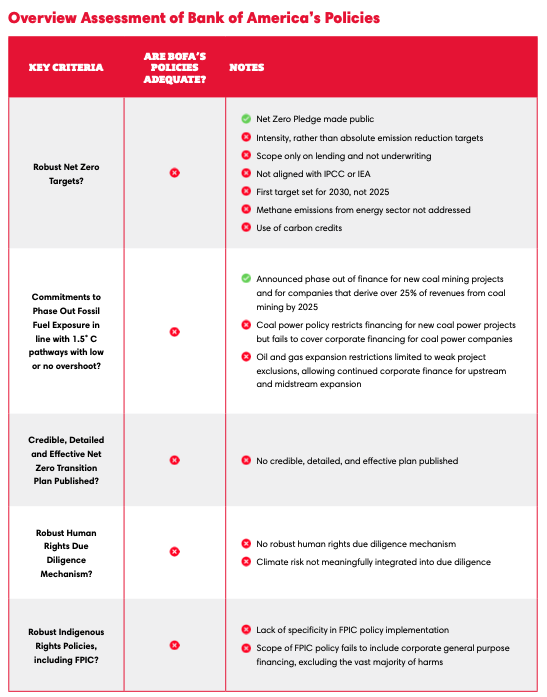
See the full report at ran.org/complicit for a more detailed analysis and policy improvement demands.
A Clear Path Forward: Human Rights and Climate Justice
While our report focuses on Bank of America, other Wall Street Banks are also complicit in these rights violations and expansion financing. Much of what we expose in BofA’s portfolio applies to them, and worse in some cases. Companies deepening the climate crisis are, by definition, complicit in the rights violations we discuss in this report.
With EU regulations requiring human rights due diligence (HRDD) mechanisms coming down the pike, there is a moment of opportunity for BofA and other Wall Street banks. They can use this regulatory moment to change direction and become part of the solution. They can choose to build real, relevant HRDD systems that integrate with climate impacts, and update their climate policies in tandem. They can immediately stop financing fossil fuel expansion and get on a path to powering a just energy transition. They can choose science and human rights compliance over the false polemics of the anti-ESG movement and get themselves onto the right side of history. Indeed, they must do so if they wish to remove the stain of complicity from their legacy for generations to come.
